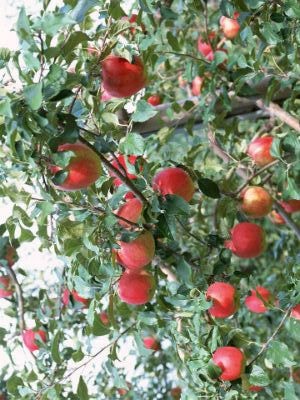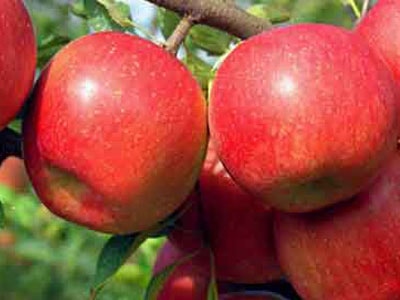Chinese apples are covered with pesticide bags on the tree from small to ripe.
Chinese media reported on June 11 that the famous Hong Phu Si apple brand in Yantai, Shandong province, famous throughout the country, uses pesticide-soaked bags to wrap apples from small to ripe.
The above information makes many people worry about the safety of using this fruit.
The above apple variety is commonly grown in The Ha and Chieu Vien. Most apple farmers in this area use a type of bag soaked in banned pesticides to cover the apples when they are still young.

Yantai, Shandong apples are big, ripe and without any sign of mold, very valuable, but few people know that they are covered with pesticides from the time they are young until they are ripe.
In March this year, local authorities inspected and discovered more than 2 million pesticide-soaked bags on sale and issued a document banning the use of pesticides in apple bags. However, the use of these toxic bags is still widespread.
The light yellow bags are made of recycled paper, and are covered with white powder particles, which are pesticides that come into direct contact with the apples when they are still young. Apple growers must wear gloves and masks when tying the bags, otherwise they will be poisoned.
Apples covered with pesticides look beautiful when ripe and show no signs of mold, so they sell for a very high price. Just counting the major wholesale markets in Beijing, each year they consume more than 100,000 tons.
The People's Daily today published a response from Mr. Chu Tan Quoc - Deputy Director of the Department of Crop Production under the Ministry of Agriculture of this country, affirming that the use of pesticides in Chinese agriculture is now much safer than before.

More and more people are expressing concern about the safety of agricultural products and fruits originating from China due to the indiscriminate use of pesticides and preservatives.
According to Mr. Quoc, the level of pesticide residue in Chinese agricultural products has decreased from 50% in the past to 10% now, 98% of rice and fruits, and 95% of green vegetables produced in China are guaranteed to be safe (according to Chinese standards).
The official avoided making any direct comments on the news that apple growers in Yantai, Shandong were using bags soaked in banned pesticides to wrap apples. He emphasized that there was nothing to be afraid of when using bags soaked in pesticides to wrap young fruit (!?).
On the other hand, when reporters from the Xinjing newspaper brought samples of pesticide-soaked bags used by Shandong farmers to specialized agencies in Beijing to test the ingredients and toxicity of these bags, they all shook their heads.

No one knows how toxic these ripe, eye-catching apples are to consumers' health when they are coated with pesticides while still young.
The widespread use of food contaminated with pesticides or containing pesticide residues today raises concerns not only for Chinese people but also greatly affects the health of consumers in other countries because fruits and agricultural products from this country are exported in large quantities.
When pesticides cover fruit from when it is young until it is ripe, no one knows how it penetrates into the fruit flesh and how it affects the health of consumers.
People only see more and more diseases appearing, in which cancer is believed by many to be directly related to the habit of eating products with high pesticide residues.
According to GDVN-M






